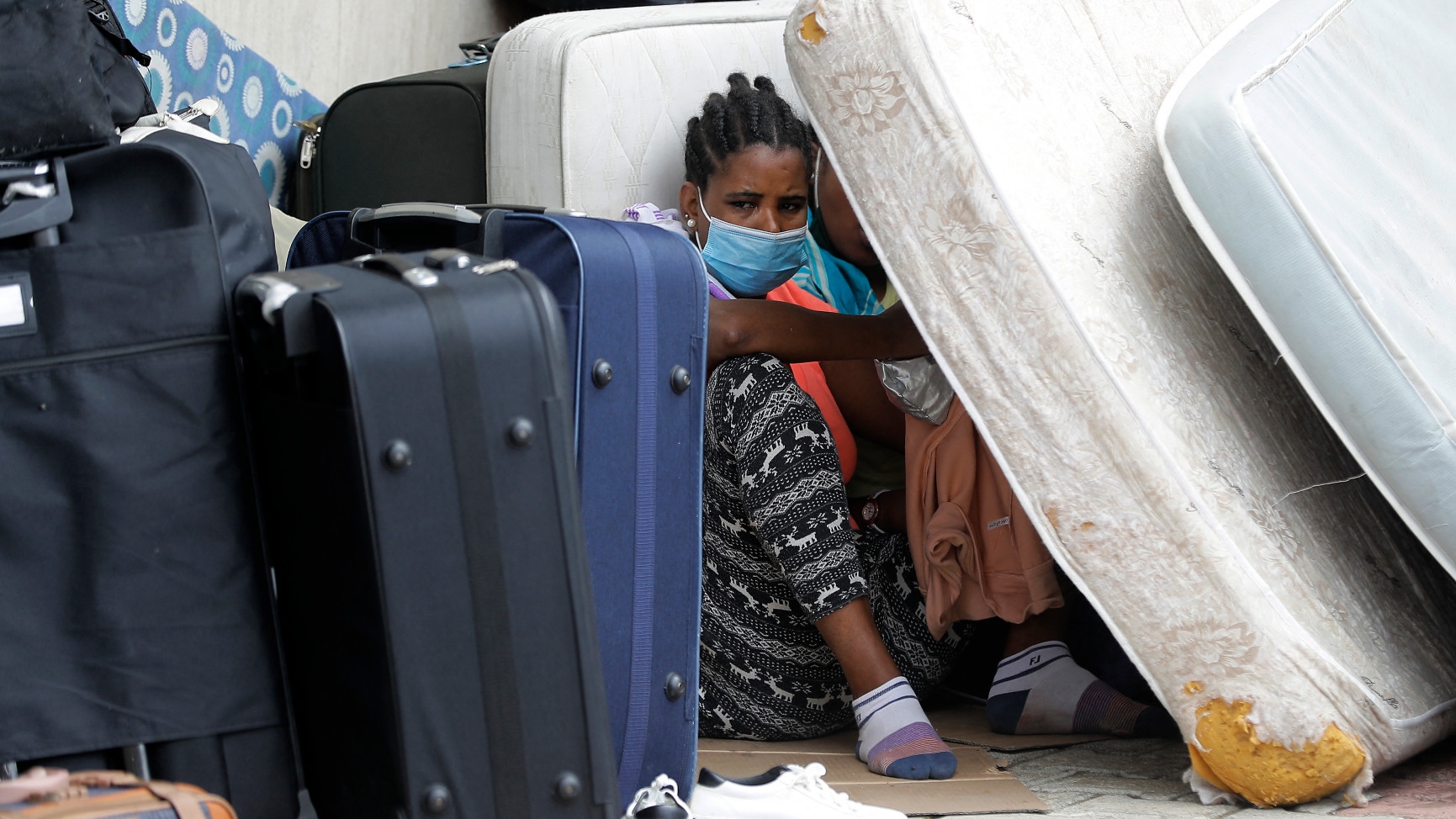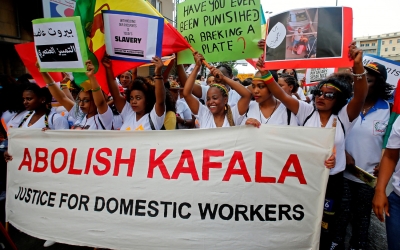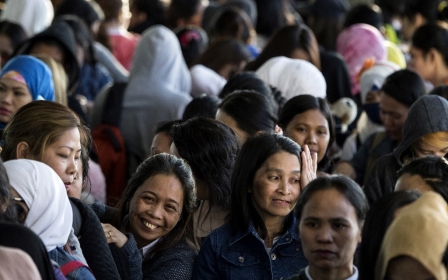'Two thirds' of female migrant workers in Lebanon survivors of sexual harassment

More than two thirds of female domestic migrant workers in Lebanon have experienced sexual harassment, according to a new study published this week by the Lebanese American University.
The research, a collaboration of the university’s Institute for Migration Studies and the migrant domestic worker-run Egna Legna Besidet migrant rights organisation, found that the overwhelming majority of sexual harassment perpetrators are male employers in the home.
For migrant workers confined to the homes of their employers, unwelcome touching, kissing and other inappropriate contact are a regular occurrence, the study found. It also noted cases of abduction, rape and taxi drivers exposing their genitals.
“What [the study] makes clear is that sexual violence against migrant domestic workers in Lebanon has been normalised and is an epidemic,” Tarikwa Abebe, who oversees humanitarian efforts for Egna Legna Besidet, told MEE. “It has got much worse with the economic crisis.”
Since the 1980s, women from poorer countries in Africa and Asia have flocked to the Middle East in search of live-in jobs, with Lebanon among the top destinations. Prior to the country’s economic crash in 2019, workers could expect to earn up to $150 monthly. Now wages for increasingly scarce jobs are mostly paid in Lebanese currency, which has lost 90% of its value.
Lebanon’s Labour Ministry estimates that there are 250,000 migrant domestic workers in the country, nearly 80 percent of whom are Ethiopians. Figures don’t take into account undocumented labourers, however.
Abuses of migrant domestic workers in Lebanon, including physical and sexual abuse as well as exploitation and confinement, are well documented. Work-induced illnesses, failed escape attempts and suicides all contribute to the estimated two migrant domestic workers dying weekly.
The workers are excluded from national labour protections so have no legal redress for abuses. Migrant worker employment is instead regulated by the country’s discriminatory “kafala” - or sponsorship - system, which has been likened to modern-day slavery.
Excluded by the law
In December 2020, Lebanese lawmakers passed Law 205, which criminalised sexual harassment, punishing perpetrators with up to a year of imprisonment.
But the law has been criticised for excluding non-Lebanese nationals from its provisions, leaving migrant workers as well as Palestinian and Syrian refugees unprotected.
Lebanon’s General Security Directorate and Labour Ministry did not give MEE a response to the study and accusations by migrants of institutional neglect by the time of writing.
An Ethiopian national and migrant domestic worker herself, Abebe said Egna Legna Besidet commissioned the research in response to the exclusion, compiling data over 10 months from nearly 1,000 interviews. They believe it to be the region’s first migrant domestic worker-led study on the topic.
“Interviewees felt more at ease speaking in their native languages with fellow migrants who can relate to their experiences and suffering,” she told MEE. “This helped them open up and share what they might not have shared with non-migrant researchers.”
'No one believes us'
The study notes intersections between race and sexual harassment of migrant workers, fuelled by a tendency among abusers to “exotify and objectify black women”.
“Racism plays a major role in the abuse,” said study co-author Dr Jasmin Lilian Diab, who directs the Institute for Migration Studies at Lebanese American University. “This is largely due to how the kafala system classifies women of colour, and how recruitment agencies make ‘whiter’ workers such as Filipina nationals more expensive to hire.”
On Friday, the authors of the study held a conference discussing the study’s findings. Among the dignitaries present were ambassadors or staff from the US, Canadian, Filipino and Ghanaian embassies. No Ethiopian diplomats came.
At least one Lebanese member of parliament showed up, the recently elected anti-establishment candidate Ibrahim Mneimneh.
Survivors shared gut-wrenching testimony and urged lawmakers to amend Law 205 to include foreign and undocumented nationals residing in Lebanon.
“I’ve lived in Beirut for almost eight years now, and I was sexually harassed almost immediately after arriving,” said one Sierra Leonean national speaking to MEE under condition of anonymity, as her undocumented status puts her at risk of arrest."
Like most of the survivors who spoke to the study, she is yet to report the abuse she experienced to the police. This reluctance comes, according to the research, from a perception of impunity in Lebanon.
“Even if you’ve been raped, the lawmakers, police and even our own embassy staff side with the abuser,” said the Sierra Leonian woman.
“No one believes us and we are on our own in Lebanon. I began sharing my experiences years later, only when other migrants told me they cared.”
This article is available in French on Middle East Eye French edition.
Middle East Eye delivers independent and unrivalled coverage and analysis of the Middle East, North Africa and beyond. To learn more about republishing this content and the associated fees, please fill out this form. More about MEE can be found here.





